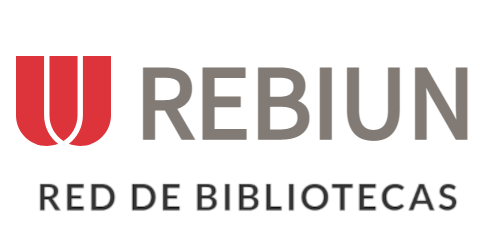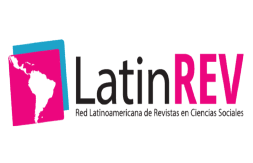Efectos de la gamificación en los estudiantes de educación superior
DOI:
https://doi.org/10.69639/arandu.v11i1.198Palabras clave:
kahoot, gamificación, motivación, compromiso, aprendizaje basado en juegosResumen
La gamificación se define como una estrategia que utiliza maneras estéticas, mecánicas y juegos, permitiendo mejorar el aprendizaje y motivación en los estudiantes. La gamificación al ser una estrategia educativa que combina la tecnología ha sido muy utilizada en la última década, dado que ha permitido aumentar el compromiso de los educandos en su proceso de educación. Se llevó a cabo una revisión sistemática de la literatura utilizando la metodología PRISMA sobre efectos que produce la gamificación en los estudiantes universitarios mediante la búsqueda de artículos en las bases de datos ERIC, WOS, Scopus, ProQuest, y Redalyc durante el periodo 2015-2024. La gamificación obtuvo efectos positivos en cuatro aspectos relevantes que son: compromiso, satisfacción, motivación y rendimiento académico. Los resultados reportan que los estudiantes que ejercieron un aprendizaje a través de la gamificación obtuvieron mejores resultados de aprendizaje. La gamificación como estrategia de enseñanza ha favorecido en gran manera a los estudiantes de educación superior, siendo más efectiva cuando la estrategia es diseñada cuidadosamente con los objetivos del curso.
Descargas
Citas
Abad-Segura, E., & González-Zamar, M. D. (2019). Análisis de las competencias en la educación superior a través de flipped classroom. Revista Iberoamericana de Educación, 80(2), 29–45. https://doi.org/10.35362/rie8023407
Aguiar-Castillo, L., Clavijo-Rodriguez, A., Hernández-López, L., De Saa-Pérez, P., & Pérez-Jiménez, R. (2021). Gamification and deep learning approaches in higher education. Journal of Hospitality, Leisure, Sport & Tourism Education, 29, 100290. https://doi.org/10.1016/J.JHLSTE.2020.100290
Aguiar-Castillo, L., Hernández-López, L., De Saá-Pérez, P., & Pérez-Jiménez, R. (2020). Gamification as a motivation strategy for higher education students in tourism face-to-face learning. Journal of Hospitality, Leisure, Sport & Tourism Education, 27, 100267. https://doi.org/10.1016/J.JHLSTE.2020.100267
Ana, G. B., Esther, L. M., Eva, E. C., & Enrique, M. G. (2021). The relationship of student academic motivation and perceived self-efficacy with academic performance in distance learning university students. RELIEVE - Revista Electronica de Investigacion y Evaluacion Educativa, 27(2). https://doi.org/10.30827/RELIEVE.V27I2.21909
Campillo-Ferrer, J. M., Miralles-Martínez, P., & Sánchez-Ibáñez, R. (2020). Gamification in Higher Education: Impact on Student Motivation and the Acquisition of Social and Civic Key Competencies. Sustainability 2020, Vol. 12, Page 4822, 12(12), 4822. https://doi.org/10.3390/SU12124822
Chans, G. M., & Portuguez Castro, M. (2021). Gamification as a strategy to increase motivation and engagement in higher education chemistry students. Computers, 10(10). https://doi.org/10.3390/computers10100132
Ferriz-Valero, A., Østerlie, O., Martínez, S. G., & García-Jaén, M. (2020). Gamification in physical education: Evaluation of impact on motivation and academic performance within higher education. International Journal of Environmental Research and Public Health, 17(12), 1–16. https://doi.org/10.3390/ijerph17124465
Ferriz-Valero, A., Østerlie, O., Martínez, S. G., García-Jaén, M., Khaldi, A., Bouzidi, R., Nader, F., Al Ghawail, E. A., Ben Yahia, S., Alrzini, J. R., Liu, T., Lipowski, M., Panmei, B., & Waluyo, B. (2021). Sports gamification: Evaluation of its impact on learning motivation and performance in higher education. International Journal of Environmental Research and Public Health, 18(1), 1–12. https://doi.org/10.3390/ijerph18031267
Gioconda Vera-Cortázar, G. I. (2022). Motivación y Deserción Estudiantil en Institutos Tecnológicos de Educación Superior en Guayaquil. Revista Multidisciplinar de innovacion y estudios aplicados, 7(6), 2078–2097. https://doi.org/10.23857/pc.v7i6.4182
Gupta, P., & Goyal, P. (2022). Is game-based pedagogy just a fad? A self-determination theory approach to gamification in higher education. International Journal of Educational Management, 36(3), 341–356. https://doi.org/10.1108/IJEM-04-2021-0126
Hernández Mite, K. D., & Laydasé Mayorga, A. A. (2022). La gamificación como recurso didáctico para las clases de Educación Física universitaria. Revista de Ciencia y Tecnología en la Cultura Física, 17(2), 796–809.
Krause, M., Mogalle, M., Pohl, H., & Williams, J. J. (2015). A playful game changer: Fostering student retention in online education with social gamification. L@S 2015 - 2nd ACM Conference on Learning at Scale, 95–102. https://doi.org/10.1145/2724660.2724665
Legaki, N. Z., Xi, N., Hamari, J., Karpouzis, K., & Assimakopoulos, V. (2020). The effect of challenge-based gamification on learning: An experiment in the context of statistics education. International Journal of Human Computer Studies, 144.
https://doi.org/10.1016/j.ijhcs.2020.102496
Lin, D., Ganapathy, M., of, M. K.-P. J., & 2018, undefined. (2018). Kahoot! It: Gamification in higher education. pertanika.upm.edu.my, 26(1), 565–582.
http://www.pertanika.upm.edu.my/resources/files/Pertanika PAPERS/JSSH Vol. 26 (1) Mar. 2018/34 JSSH-2477-2017-3rdProof.pdf
Liu, T., & Lipowski, M. (2021). Sports gamification: Evaluation of its impact on learning motivation and performance in higher education. International Journal of Environmental Research and Public Health, 18(3), 1–12. https://doi.org/10.3390/ijerph18031267
Murillo-Zamorano, L. R., López-Sánchez, J. Á., López-Rey, M. J., & Bueno-Muñoz, C. (2023). Gamification in higher education: The ECOn+ star battles. Computers & Education, 194, 104699. https://doi.org/10.1016/J.COMPEDU.2022.104699
Navarro-Espinosa, J. A., Vaquero-Abellán, M., Perea-Moreno, A. J., Pedrós-Pérez, G., Martínez-Jiménez, M. D. P., & Aparicio-Martínez, P. (2022). Gamification as a Promoting Tool of Motivation for Creating Sustainable Higher Education Institutions. International Journal of Environmental Research and Public Health, 19(5). https://doi.org/10.3390/ijerph19052599
Nieto-Escamez, F. A., & Roldán-Tapia, M. D. (2021). Gamification as Online Teaching Strategy During COVID-19: A Mini-Review. Frontiers in Psychology, 12, 648552. https://doi.org/10.3389/FPSYG.2021.648552/BIBTEX
Panmei, B., & Waluyo, B. (2023). The Pedagogical Use of Gamification in English Vocabulary Training and Learning in Higher Education. Education Sciences, 18(1), 1–12. https://doi.org/10.3390/educsci13010024
Prieto-Andreu, J. M., Gómez-Escalonilla-Torrijos, J. D., & Said-Hung, E. (2022). Gamification, Motivation, and Performance in Education: A Systematic Review. En Revista Electronica Educare (Vol. 26, Número 1). Universidad Nacional. https://doi.org/10.15359/ree.26-1.14
Prieto Andreu, J. M. (2020). A systematic review about gamification, motivation and learning in high school. En Teoria de la Educacion (Vol. 32, Número 1, pp. 73–99). Ediciones Universidad de Salamanca. https://doi.org/10.14201/teri.20625
Treiblmaier, H., & Putz, L. M. (2020). Gamification as a moderator for the impact of intrinsic motivation: Findings from a multigroup field experiment. Learning and Motivation, 71. https://doi.org/10.1016/j.lmot.2020.101655
Wang, A. I., & Lieberoth, A. (2016). The effect of points and audio on concentration, engagement, enjoyment, learning, motivation, and classroom dynamics using Kahoot! Education, Computer Science.
Xi, N., & Hamari, J. (2019). Does gamification satisfy needs? A study on the relationship between gamification features and intrinsic need satisfaction. International Journal of Information Management, 46, 210–221. https://doi.org/10.1016/j.ijinfomgt.2018.12.002
Publicado
Cómo citar
Número
Sección
Licencia
Derechos de autor 2024 Luis Daniel Pombosa Manobanda, Anthony Fernando González Asqui , Ximena Elizabeth Toapanta Paredes, Michelle Paulette Arana Chamorro, Denisse Lucia Izurieta Freire

Esta obra está bajo una licencia internacional Creative Commons Atribución 4.0.





















